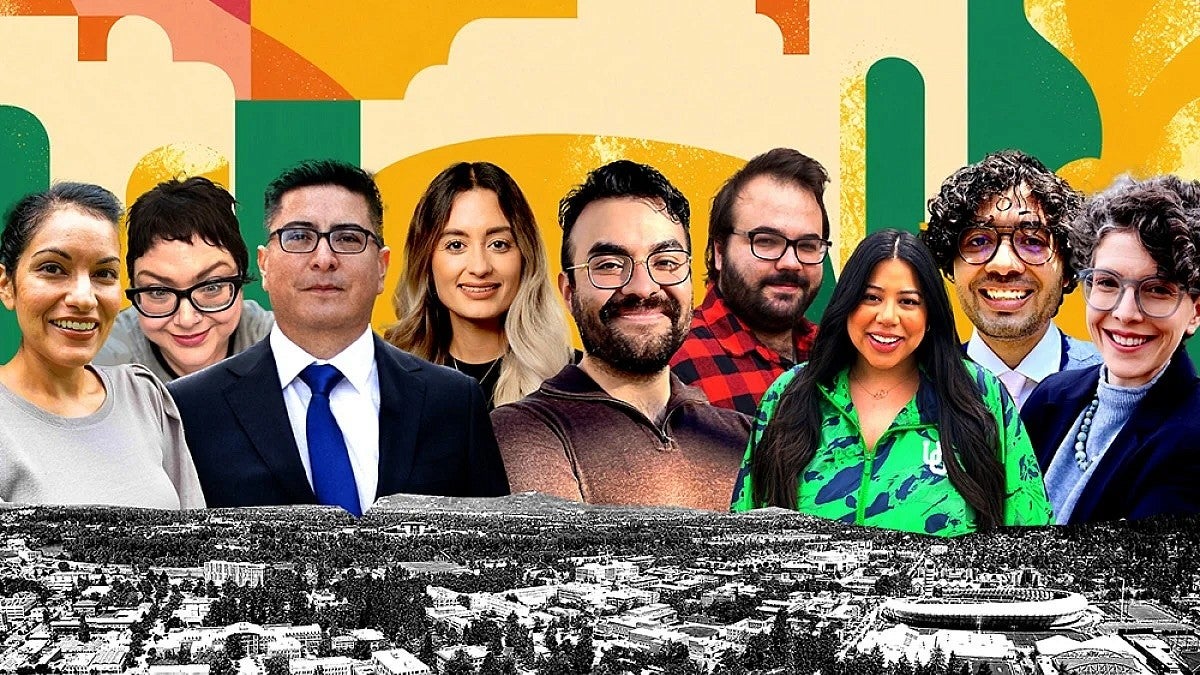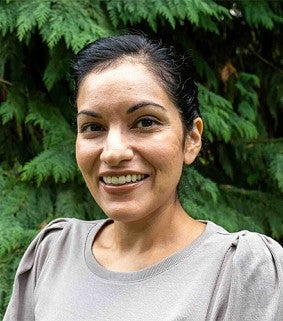
The College of Arts and Sciences is investing in its Latinx studies courses by hiring nine new tenure-track faculty members. The new hires will offer courses to meet the demands of a growing Latinx Studies Minor Program, mentor undergraduate and graduate students, provide fresh perspectives in their disciplines—and more.
Arifa Raza (Indigenous, Race and Ethnic Studies Program) is one of nine Latinx studies-related tenure-track professors who are part of CAS’s investments in a growing academic field.
Coming from Washington State University, Raza’s research investigates the relationship between law, culture, and historical legacies to understand the process of immigration and citizenship of Latinx as it intersects with other communities in the US.

What does your research focus on? Are you working on research for any publications right now? If so, what are you working on?
My research examines the criminalization and racialization of immigrants through immigration laws, focusing on humanitarian relief for victims of human trafficking and immigrant children. My scholarship is grounded in my prior work as a non-profit immigration attorney providing deportation defense to asylum seekers.
I am currently completing my book project which details how immigration protections for migrant children reinforce border enforcement measures. I am also working on a pilot project exploring the challenges human trafficking survivors from racially minoritized communities face in obtaining legal protections.
There is a high demand by UO students for Latinx studies-related courses. In what ways would you say Latinx courses enrich a student’s education?
Latinx courses enhance all majors by introducing students to the history and culture of Latinx communities. This exposure fosters critical thinking and raises awareness of the historical and contemporary issues affecting these communities. Such courses enrich students’ education by providing diverse perspectives on contemporary issues.
By studying both historical and current topics, students can develop critical thinking skills, make connections across different communities, and cultivate cultural sensitivity and an appreciation for diversity and varied viewpoints. Ultimately, I believe Latinx courses help to make students engaged and socially aware individuals which will benefit them no matter what career path they ultimately take.
What was your academic career like? Did you always know you wanted to be in academia? What inspired you to become a professor?
I took a somewhat nonlinear path to academia. I began my PhD in Ethnic Studies where my research led me to law school. While in law school I interned at various immigration nonprofits, and I decided after graduating to take the bar and become a practicing attorney.
During that time, I gradually worked towards by PhD ultimately finishing it nearly eight years after I started. As a first-generation college student, I didn’t know what being an academic was or what it entailed. It was through my undergrad major in Chicanx studies and taking classes and conducting research with my professors that I became inspired to become an academic. I was inspired by their community-engaged research and seeing how academic research can positively impact communities.
While it took me while to get here, I hope to continue this line of community-engaged and impactful work.
And a couple fun ones: What’s your desert island book? What’s your favorite food?
Other than academic books, the majority of my reading consists of books on cats and fairytales I read with my six-year-old daughter. Among those I actually enjoy the Whatever After series by Sarah Mlynowski which are modern spins on fairy tales. As for food, I have a sweet tooth and can eat a fruit tart anytime.
